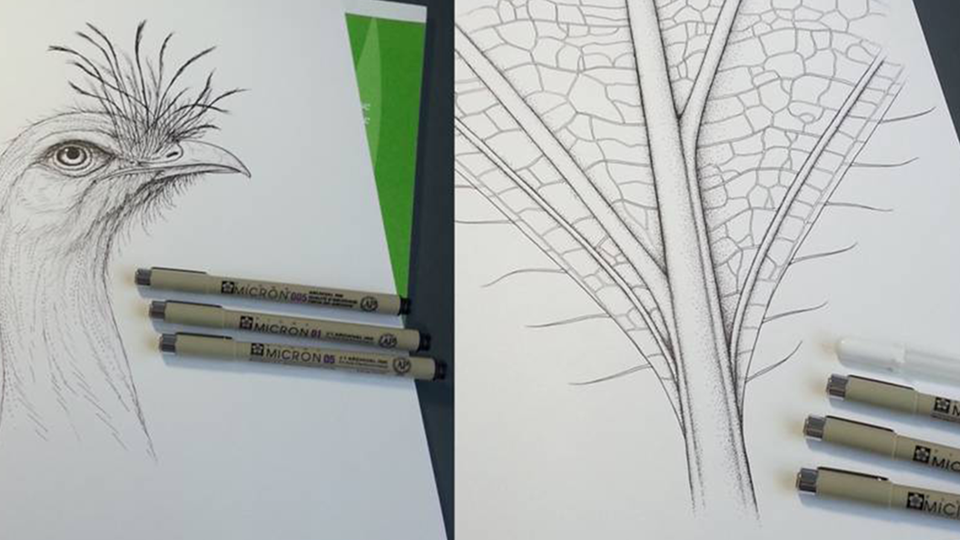
Working in the Project Lab and having the chance to interact with the public I am often asked what tools I use to create some scientific illustrations. I’ll often immediately jump to my overloaded case of diverse pigma micron pens and my mechanical pencils of 0.3mm width. As a technical and scientific illustrator, being accurate to the true form of your subject is absolutely essential. These tiny pens and pencils provide that easy maneuverability and intense detail to achieve that accuracy.
Here you can see some of the materials that I use to achieve the basics. Tiny 0.3mm mechanical pencil, tracing paper for preliminary sketches, carbon paper for transferring your sketches, vellum paper because it beautifully accepts ink, and an array of pen and ink materials for final illustrations. I’ve collected every size of pigma microns and use each one to accurately render the basics of an illustration: size, form, and even light on form to illuminate shape and volume of certain structures. Keep in mind this is all done to communicate a scientific concept or principle as simply as possible!

These are some simple to complex illustrations. Remember when illustrating (scientifically!) be as observant as possible on tiny details that characterize your subject. Be true to its form and render exactly what you see, that was you could educate others on the plant or animal on what you may have seen.
Also remember that practice makes perfect. Continuously practice drawing and doodling whenever you have time and eventually you’ll take a moment to realize how far you’ve come. While in elementary school I found myself drawing my favorite animals, plants, and Saturday morning cartoons. Now I’ve somehow found myself here in the California Academy of Science’s Project Lab illustrating newly discovered species for publication. If you are curious about the field of Scientific and Natural History Illustration check out my website and please feel free to contact me with any questions you may have!
Sean Vidal Edgerton, Science Illustrator, California Academy of Sciences

